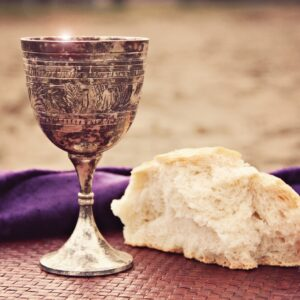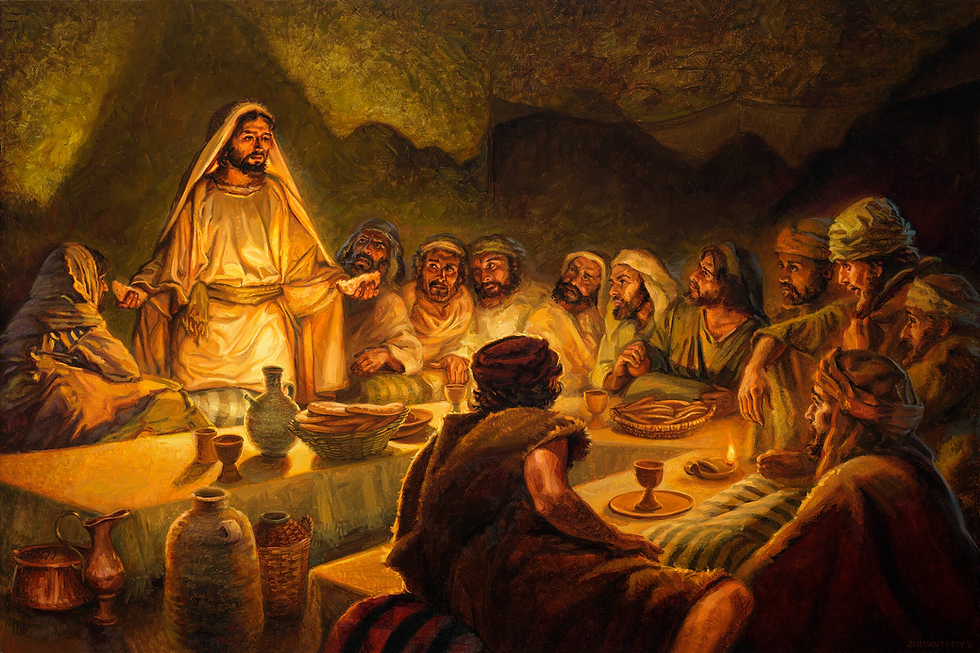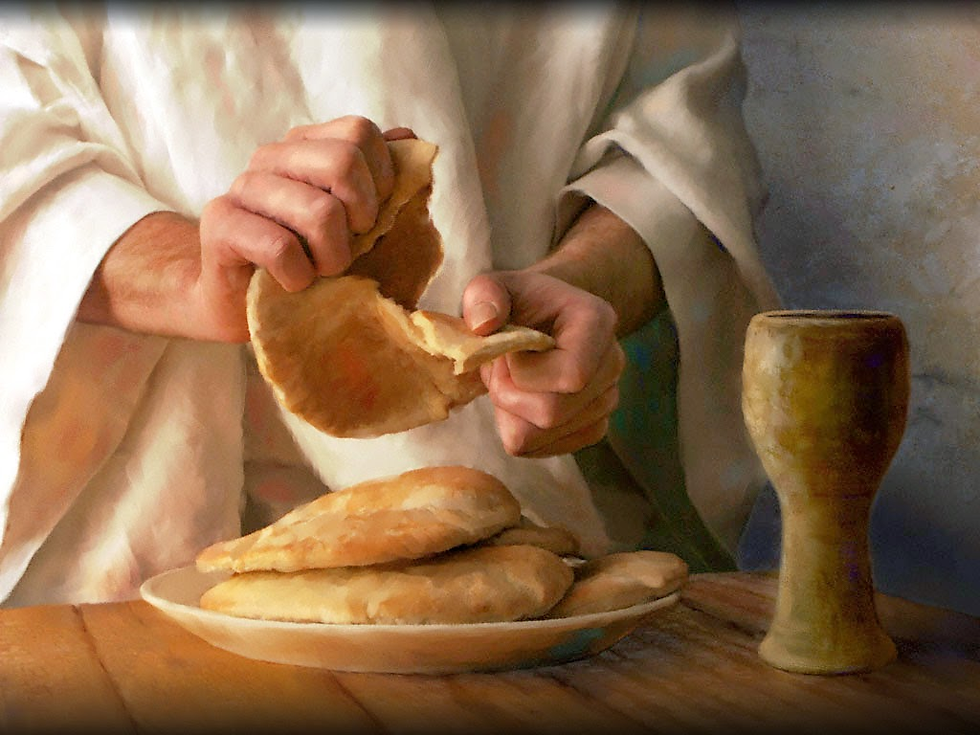Communion: Not A Sunday Morning Snack
- bekindbport

- Jan 31, 2024
- 3 min read
Updated: Feb 1, 2024
Communion, not just a Sunday morning snack. The word “communion” means connection (Schenck), but sadly, it has become a routine practice in many churches. Because communion emerges as a powerful and meaningful practice in Christian traditions, sharing grape juice and breaking bread during worship service holds significance rooted in Biblical teachings; therefore, believers should partake in the practice with humility and reverence.
Communion entails two elements: the bread and wine...
Did you know they have a historical meaning and symbolism?
As far back into Genesis in the days of Moses, bread and wine are used to show honor and blessings.
Genesis 14:18-19 says, “ . . . the king of Salem brought out bread and wine. He was Priest of God Most High, and he blessed Abram . . . ”(NIV).
Leviticus reveals to us that only the priest could eat an offering to God in the temple of unleavened bread.
Finishing that thought, in Revelation, Jesus calls believers priests unto God.
Symbolism from the Old Testament to the New Testament, the two elements of communion merge the faith of the Jewish believers back in the days of Moses when they were awaiting their Messiah and showcase how Jesus fulfilled the Old Testament law. Jesus fulfilled the prophecies of the coming Messiah and used communion to be more than just a piece of bread and wine (or juice) believers partake in Sunday services.
Bread and wine have a new meaning because of Christ . . .
In his gospel, the Apostle Luke writes in Luke 22:19-20, then Jesus took bread, gave thanks, and broke it . . . “This is my body given to you; do this in remembrance of me”. . .
he took the cup . . . “This cup is the new covenant in my blood, which is poured out for you” (NIV).
Believers break the bread and share in the body of Christ, which remained clean from sin up to the cross where he took upon himself every believer’s sins. Believers eat from one loaf of bread, one body like those in Israel, who were united together being one in the faith (Roberts). Those who believe take the bread and the juice to remember what Christ did on that day when he saved his faithful believers from the judgment of their sins and punishment, which would result in separation from God forever.
There is a time and place for everything. . .
1 Corinthians 11:27 affirms, “Whoever eats the bread or drinks the cup of the Lord in an unworthy manner will be guilty of sinning against the body and blood of the Lord” (NIV).
Corinthians 11:33 encourages “. . . when you gather to eat, you should all eat together” (NIV).
Believers must come to communion after looking at their hearts. If believers are guilty of sin they must ask forgiveness first before partaking in the Lord’s Supper. Those who join in communion should examine themselves before partaking. With a sincere profession of faith in Christ and maturity enough to discern the body in the Supper, believers then join together to remember Christ's sacrifice (Batzig). Followers of God do not take the communion elements alone but with other believers, as one body. The elements are special and taken with great consideration in a place of worship and a time of remembrance.
Granite Springs Church. “Curious About Children And Communion.”
Communion: A Bible Study Wordbook for Kids
Let's Recap . . .
Communion emerges from the beginning of the scriptures in a meaningful practice that Christians hold today in their worship.
Believers share the grape juice and break bread holding onto its significance rooted in Biblical teachings about when Christ came and saved them from themselves.
Communion is not a snack believers take during church service
Communion connects them with their Christian family as they remember and honor Christ together.
Knowing that they are sinful and need a Savior, they are emersed fully in water, a ritual of faith just as John the Baptist did to Jesus. They accept the Holy Spirit into their lives as believers turn themselves over to God. They repent of their sins, and finally, they commune with their brothers and sisters in faith, they partake in a beautiful and meaningful meal of breaking bread and juice to remember the sacrifice of God and Christ.

Author Bio: Cristy is a sophomore at Summit Christian College where she is earning her Bachelor's in Biblical Studies degree. In between working and studying, Cristy spends the little time left after a busy day with her children. Outside of her studies and motorcycle riding, she takes pleasure in cooking, drawing, photography, and dancing.







Comments